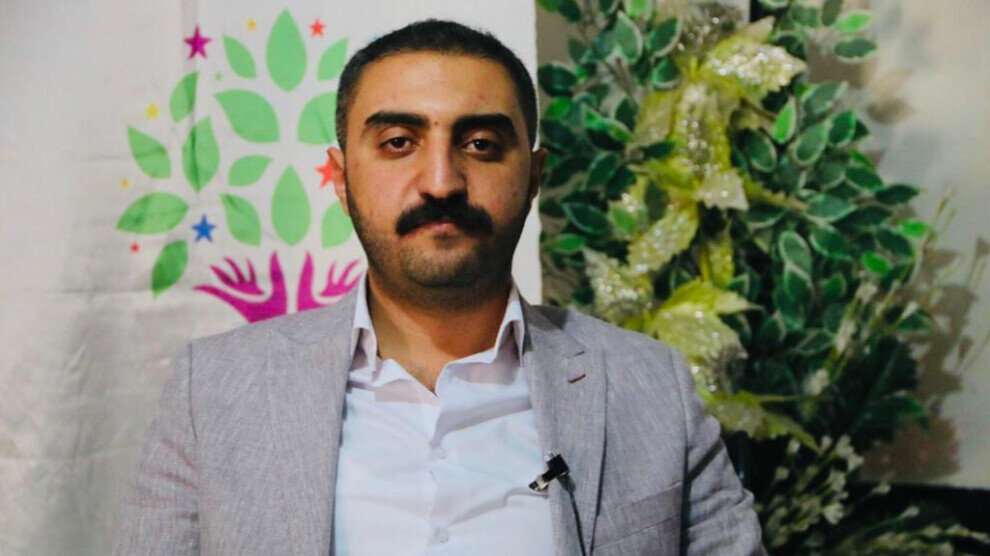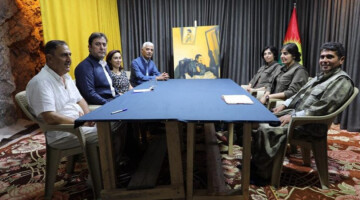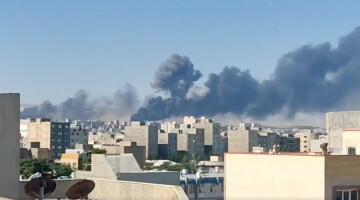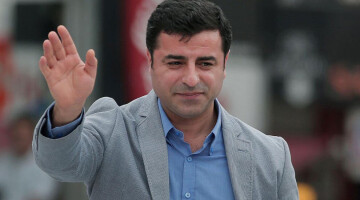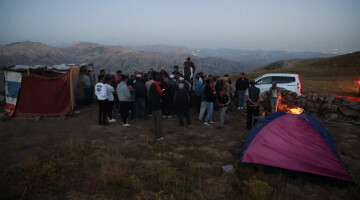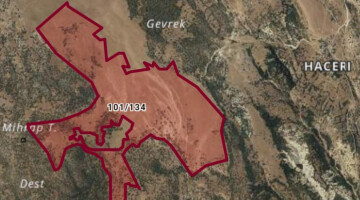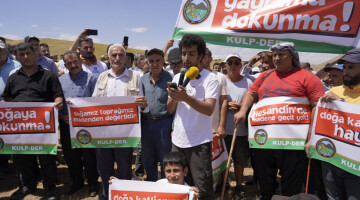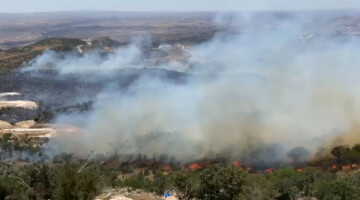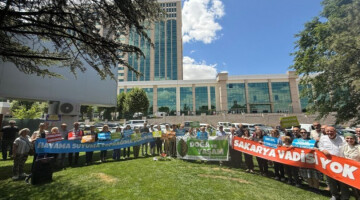High levels of air pollution threaten the Hakkari city centre and the Gever (Yüksekova) district. Hakkari has been one of the cities with the highest levels of polluted air in Turkey and Kurdistan in recent years. According to the 'Black Report 2021' by the Right to Clean Air Platform, Hakkari is ranked as the third city with the lowest quality air in 2020. Moreover, the provinces which had the lowest air quality in 2020 were Kurdish cities such as Iğdır, Ağrı and Muş.
Speaking to ANF, Peoples' Democratic Party (HDP) Gever (Yüksekova) District co-chair Şoreş Diri stated that the air pollution issue in Gever is the outcome of human misconduct. According to Diri, the poor people who use any available material to get warm in winter are not responsible, but rather the government and its local supporters, who offer the coal bought with the taxes of the people to them as a charity.
Public health experts of the Turkish Medical Association found out that the carbon dioxide and carbon monoxide released by the poor-quality coal distributed by the government caused air pollution especially in Gever and the rest of Hakkari, Diri recalled and added, “This situation is limited to a period or a year. We see that the problem is related to the poor quality of coal distributed by the AKP and is the outcome of long-term corruption that involves the government.”
POLICY OF IMPOVERISHMENT
Diri expressed that the government is pursuing a policy seeking to make the Hakkari city completely dependent on it. “The local people who have been impoverished by various security policies are either offered to be village guards or agents. They are rendered dependent on the basic food and life products provided by state institutions. Extremely low-quality coal is distributed to the local people during the winter months as an important part of the policy of impoverishment. This coal is brought from the mines in Şırnak. The main reason why air pollution is so high, especially in the winter months, is this type of coal which is bought from pro-government companies and given to the poor people under the pretext of aid."
GOVERNMENT POLICIES THREATEN PUBLIC HEALTH
Diri noted that the Gever plain has a tectonic formation and when poor quality coal is used, it affects the air circulation negatively. He explained the effects of air pollution on people and nature as follows: “Because Gever has a bowl-shaped structure, air circulation is extremely low, which makes it difficult for the air to clear, and when mixed with the air, coal remains there for a long time. The spread of this air pollution caused by cheap and poor-quality coal over the years threatens public health and animal and plant flora with extremely dramatic results. For example, we see that this pollution in the air mixes with the drinking water in Yüksekova city centre through snow or rain and increases the pollution. When the polluted air mixes with the snow, the water emerging with the melting of the snow reduces the productivity in agriculture and spreads some plant diseases.
BORDER CITIES DO NOT ENJOY NATURAL GAS
Diri stated that Turkey is dependent on foreign countries for natural gas, continuing, “Turkey imports natural gas from countries such as Russia and Iran. This is normal, but when you look at it, you realize that most of the natural gas is delivered to western cities through pipes passing through or near Kurdish cities. One of the border towns where natural gas can be delivered most easily, is Gever, which, however, is deprived of this opportunity. These areas have been classified as ‘deprivation zones’ by the governments since the first years of the Republic. The ruling AKP-MHP maintains this policy. Therefore, we see that the air pollution in our city is not an exception on an annual basis. Quite the contrary, it is becoming a common case that is visible almost every year. The lack of natural gas in our city is the outcome of an organized policy."
Diri added that natural gas for the region will be put out to tender on January 12 and that they will closely follow the process. The tender for natural gas was cancelled twice previously.

